Introduction
South Korea has developed a carbon labeling scheme for intermediate products and services and a low-carbon product certification scheme, both of which are non-mandatory and voluntarily participated by enterprises. The carbon label certification is divided into three phases, namely carbon emissions certification, low-carbon products certification and carbon neutral products certification. The benefits of applying for a carbon label in South Korea are as follows:
-
Regarded as items of environmental value in the selection evaluation of the bidding system by the Public Procurement Service.
-
Earn up to two extra points added to the G-SEED[1] when using carbon labeled products.
-
Green card cardholders can earn ECO MONEY points[2] when practicing low-carbon and eco-friendly consumption, such as energy saving and green products.
-
Small and medium-sized businesses are given 50% of reduction of SME certification fees.
-
Support to SMEs for calculating product carbon emissions.
-
Promote certified products through newsletters, media and exhibitions.
1 G-SEED: The Green Standard for Energy and Environmental Design
2 ECO MONEY: Can be used as cash when reaching a certain number of points.
Scope of calculation
Products for certification: agricultural, forestry, fishery and livestock products, as well as medicines and medical equipment are excluded.
Class 1: General products, non-durable goods (e.g., stationery, candy, etc.) and durable goods and services without energy use.
Class 2: Energy using durable goods and products regulated by Energy Using Products (EuP).
*The scope of calculation for Class 1 and Class 2 is different.
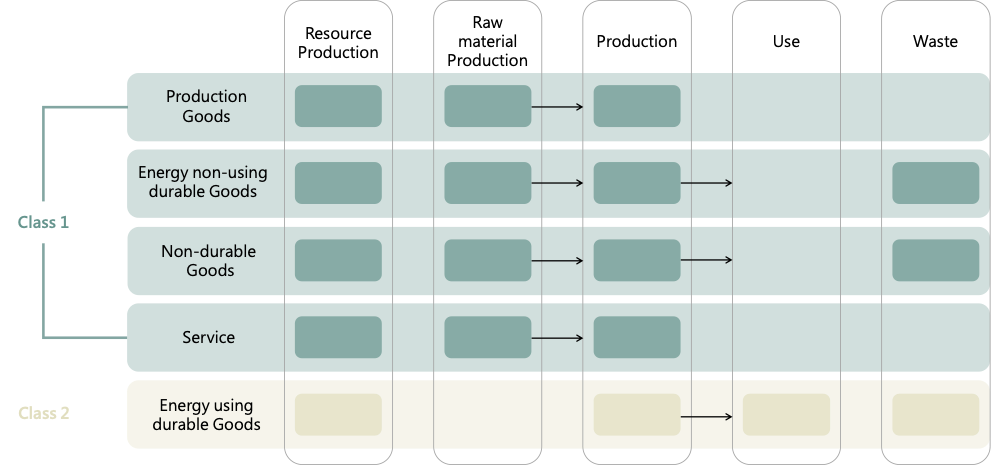
Application procedure
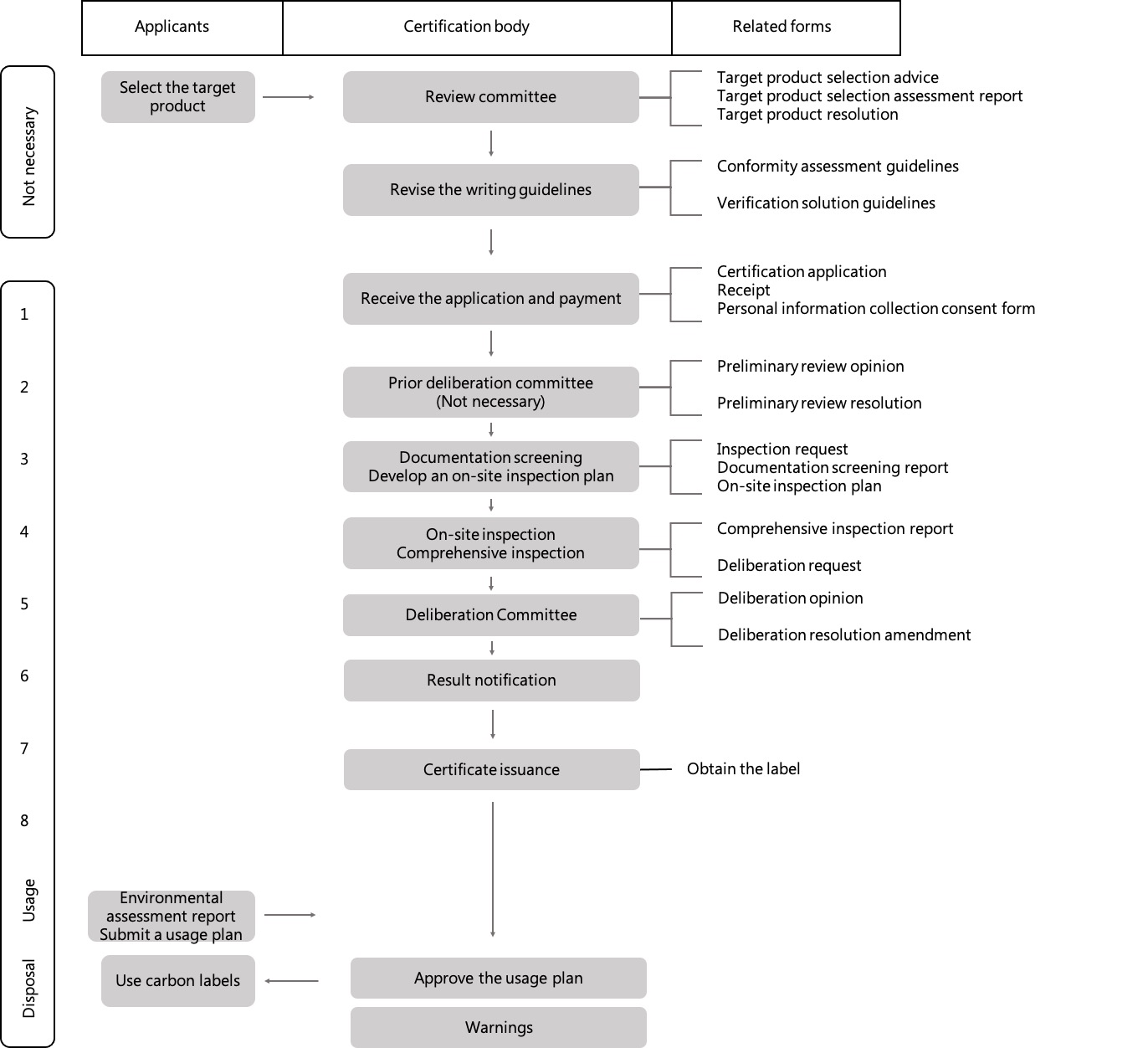
Documentation and fees required for certification
Documentation required to apply for certification:
- Environmental label certification application
- Environmental label certification application report and documentation
- Business registration certificate
- Factory registration certificate
- SME certification and VAT certification (for SMEs)
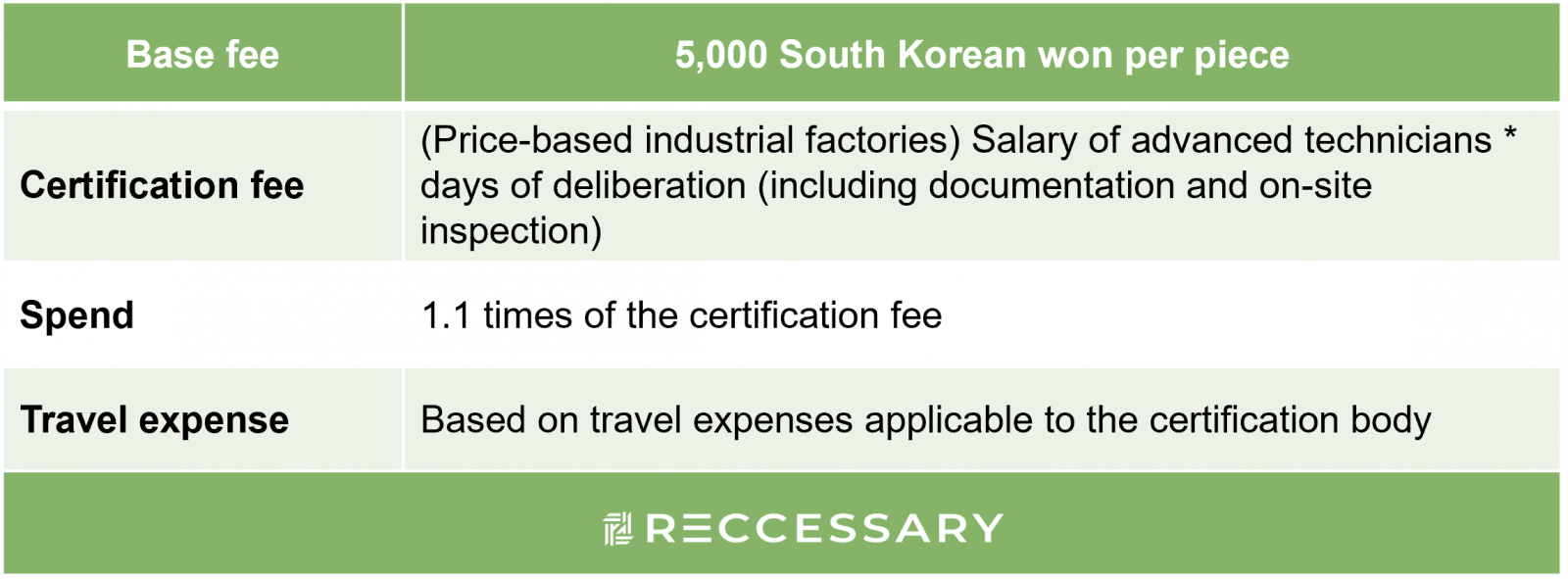
Illustration
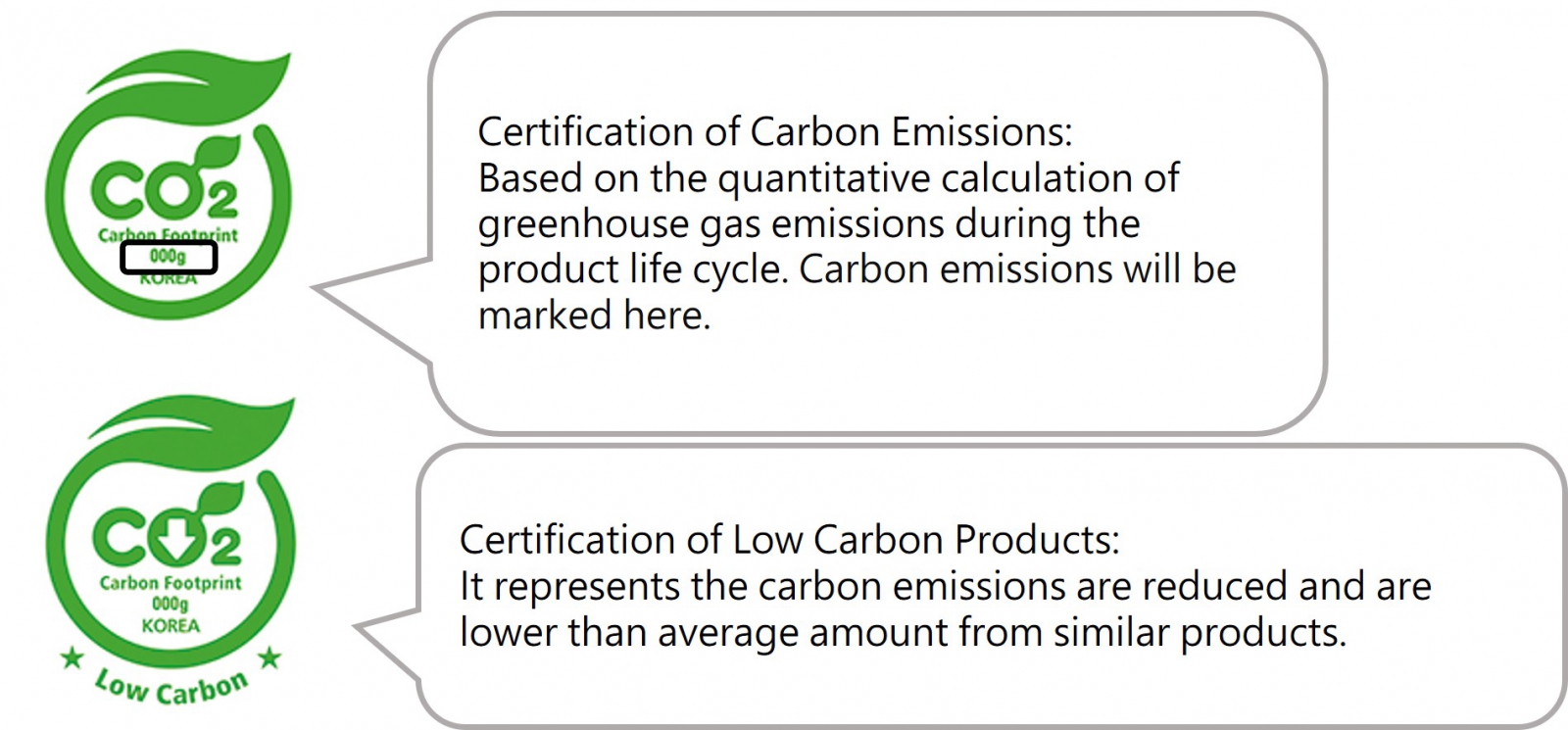
Actual case
Coca-Cola in South Korea
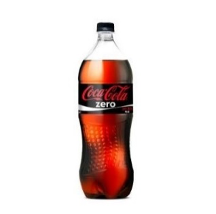
Product carbon footprint: 347 g CO2-eq/bottle
Raw material: 153g (44.10%)
Manufacturing: 167g (48.13%)
Usage: 0g
Disposal: 26.3g (7.58%)